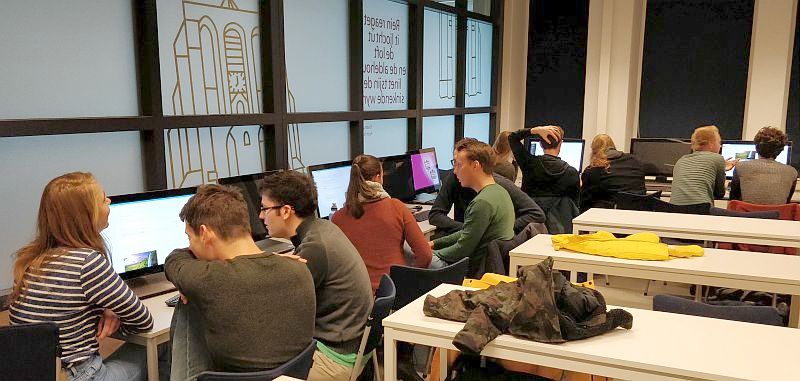Nieuwe manier van tentamens maken: eerst individueel, daarna samen

Op 11 december is bij de Faculteit Ruimtelijke Wetenschappen voor het eerst een digitaal two-stage tentamen afgenomen. Hierbij maken studenten het tentamen eerst individueel. Meteen daarna maken ze hetzelfde tentamen nog een keer, ditmaal in een groepje waarbij over elke vraag gediscussieerd kan worden.
Het individuele cijfer is goed voor 75 procent van het eindcijfer. Het groepscijfer telt alleen mee als dat hoger is dan het individueel behaalde cijfer. Slechter scorende groepsgenoten brengen het eindcijfer van de studenten die een hoger individueel cijfer hebben dus niet omlaag.
Leren van elkaar
Het doel van two-stage tentamens is dat studenten iets van elkaar leren. Docent Culturele Geografie Peter Groote is initiatiefnemer. “Vroeger werden tentamens als middel gebruikt om te controleren of studenten wel hun best deden. Ik vind het belangrijk dat studenten ook van het tentamen iets kunnen leren. Tijdens het groepstentamen ontstonden er prachtige discussies over de stof.”
De studenten van het vak Nature, Landscape and Heritage van de masteropleiding Cultural Geography werden door de docenten in groepjes van drie verdeeld. De diversiteit van die groepen zorgde voor verschillende inzichten, wat de discussie ten goede kwam. Ook de studenten vonden het leuk om op deze manier een tentamen te maken.
Resultaten
Het gemiddelde eindcijfer van de individuele toets is een 6.4. Voor het groepstentamen een 6.9. Zeven van de achttien deelnemers hebben op het groepstentamen een lager cijfer behaald dan op hun individuele toets. Dat zou kunnen betekenen dat studenten nog beter getraind moeten worden in luisteren naar elkaars argumenten om als groep tot de beste conclusie te komen.
Meer informatie
Filmpje over two-stage tentamens van de University of British Columbia, Canada
Meer nieuws
-
01 december 2025
De kracht van beweging


